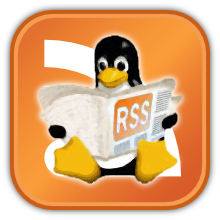 Fyre project is a tool for producing computational artwork based on histograms of iterated chaotic functions.
Fyre project is a tool for producing computational artwork based on histograms of iterated chaotic functions. At the moment, it implements the Peter de Jong map in a fixed-function pipeline with an interactive GTK+ frontend and a command line interface for easy and efficient rendering of high-resolution, high quality images.
This program was previously known as 'de Jong Explorer', but has been renamed to make way for supporting other chaotic functions.
All the images you can create with this program are based on the simple Peter de Jong map equations:
x' = sin(a * y) - cos(b * x)
y' = sin(c * x) - cos(d * y)
For most values of a,b,c and d the point (x,y) moves chaotically. The resulting image is a map of the probability that the point lies within the area represented by each pixel. As you let Fyre render longer it collects more samples and this probability map and the image becomes more accurate.
The resulting probability map is treated as a High Dynamic Range image. This software includes some image manipulation features that let you apply linear interpolation and gamma correction at the full internal precision, producing a much higher quality image than if you tried to create the same effects using standard image processing tools. Additionally, Gaussian blurs can be applied to the image using a stochastic process that produces much more natural-looking images than most programs, again without losing any of the image's original precision.
What's New in This Release:
· New scalable (and not-ugly) icon, drawn by Andreas Nilsson
· Fix a few crashes in pathological and corner cases
· Add +/- 1 subpixel of noise during oversampling, to avoid aliasing in certain conditions
· Implement the 'Polar' variant of the Box-Mueller transform, for a slight performance increase.
Download.

Custom Search
If you liked this article, subscribe to the feed by clicking the image below to keep informed about new contents of the blog:














Fyre is a fractal generator for Linux and Windows. Fyre produces beautiful and soft fractals that look almost like silk and smoke. I find the output very nice and can easily add exotic and appealling touches to certain types of photo retouching work.
ReplyDeleteIf used in Conjunction with a good image editor such as GIMP, Paintshop Pro, Photoplus or Photoshop, Fyre effects can be overlayed onto photographs.